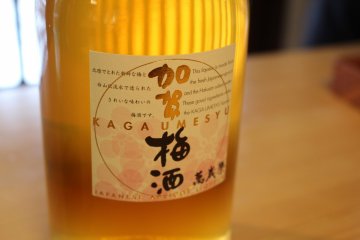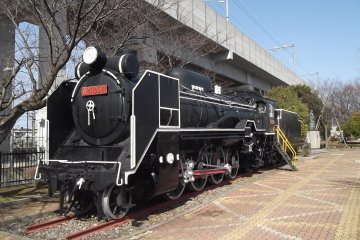Located in western Japan’s Hokuriku region, Ishikawa Prefecture is home to rich cultural heritage, natural landscapes, and diverse craft experiences. Just a 30-minute train ride from Kanazawa Station is a charming area called Nomi City, where tradition meets modernity. In addition to preserving its historical identity, Nomi City also finds ways to evolve its culture, crafts, and scenic spots.
Listed below are Nomi City highlights from Sumi, a member of JAL Furusato Ambassadors.
Nomi Neagari Station
The journey begins at Nomi Neagari Station. Located along the IR-Ishikawa Railway, the railway station is well connected to other cities and serves as an important hub for visitors.
The interior of the station is decorated with red, yellow, green, navy blue, and purple polka dots on glass walls. Particularly on sunny days, the polka dots brighten the station and reflect beautifully outside. The polka dots are known as “Kutani Gosai,” which is related to Kutani ware, a traditional craft in this area. It is a great photo opportunity!
Although Nomi Neagari Station is small, it offers a warm welcome to Nomi City. From the station, several local bus routes are available. To learn more about Nomi City’s impressive Kutani ware, take the community bus named Nomi Bus to Kutani Pottery Village. It is a 15-minute drive.

Kutani Pottery Village
The Kutani Pottery Village is a renowned site dedicated to showcasing the art of Kutaniyaki (Kutani ware in English), a traditional style of Japanese porcelain originating from Ishikawa Prefecture. With a history of over 360 years, “Kutani” was named after a discovery of clay deposits, and the first kilns were established there.
At Kutani Pottery Village, you can learn about the history and production process of Kutani ware. Nomi City continues to produce Kutani ware, blending traditional techniques with modern aesthetic. The “Kutani Gosai” polka dot pattern can be seen on many of the ceramic wares.
Try your hand at pottery at the “Hands-on Experience House,” where you can use a pottery wheel to mold a vessel of your choice and paint it with guided instructions. With the artists’ guidance, you can deepen your understanding of Kutani ware techniques and history. On Saturdays and Sundays, many local artists frequent the store. If the timing is right, you can listen to Kutani artists talk about their works.
There are more than ten unique Kutani ware stores at the Kutani Pottery Village, providing plenty of opportunities to browse and find the perfect design to take home. From traditional Kutani ware to modern pieces by young artists, there is a wide range available for purchase. Finding your favorite Kutani ware can easily become a memorable way to spend your time at the Kutani Pottery Village.


Nomi Furusato Museum
At the Nomi Furusato Museum, you can learn about the rich history of Nomi City since its inception in the Heian period (794-1185). There are many valuable exhibits, such as pottery with “Nomi” written on it from when the city was established, as well as artifacts from ancient burial mounds.
For a family-friendly activity, the Children's Museum NOMIKKE is an interactive area that encourages learning through discovery and play. You can learn about the history and nature of Nomi City in an engaging way.
If you look closely at the floor, you will see the shape of a typical Nomi burial mound, called a kofun. The intentional details in the Children's Museum NOMIKKE will catch the attention of both children and adults alike.
Neagari Beach
After an eventful day, why not wind down at the beach and bask in the sunset? Overlooking the Sea of Japan, the clear water stretches farther than the eye can see. Neagari Beach is perfect for a sunset picnic or simply for a moment of tranquility.

Nomi City finds the balance of preserving its history and culture while introducing it in a new style. With plenty of diversity in history, culture, and beauty, Nomi City is filled with charms worth exploring.











